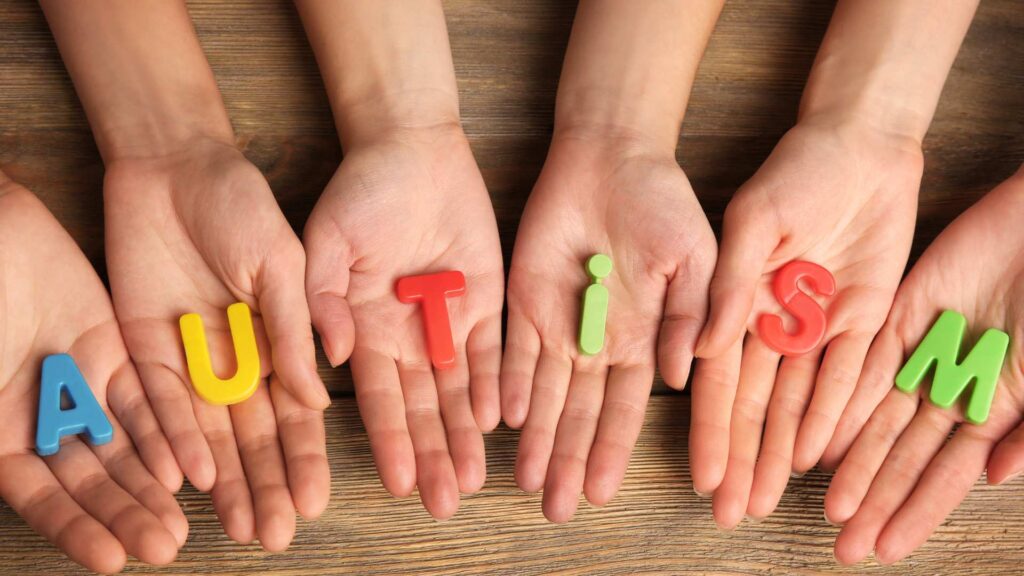Table of Contents
Do individuals with autism do well in college?
We have previously discussed the challenges individuals with autism spectrum disorder (ASD) face throughout their lives. Each stage comes with its unique set of obstacles, and one of the most significant for young adults with autism in college is navigating social life, academic performance, and expectations. For many young adults with autism, everyday struggles can include:- Navigating social situations
- Interpreting non-verbal cues
- Managing sensory sensitivities
- Adapting to unstructured environments
Common Misconceptions about Individuals with Autism in College
 One of the challenges that young adults with autism encounter in college is the prevalence of misconceptions surrounding their condition. Many still have a narrow view of autism, believing that all individuals on the spectrum are the same or that the condition only involves intellectual disabilities. In truth, autism is highly individualized. Some students may struggle with sensory overload in busy environments, while others may have difficulty reading social cues or adjusting to unstructured settings like group projects.
These misconceptions can lead to misunderstandings with professors and peers, who might expect certain behaviors or responses that don’t align with the way an individual with autism experiences the world. This misinterpretation creates added pressure for young adults with autism to constantly explain their needs or even mask their difficulties, leading to emotional exhaustion and feelings of isolation.
One of the challenges that young adults with autism encounter in college is the prevalence of misconceptions surrounding their condition. Many still have a narrow view of autism, believing that all individuals on the spectrum are the same or that the condition only involves intellectual disabilities. In truth, autism is highly individualized. Some students may struggle with sensory overload in busy environments, while others may have difficulty reading social cues or adjusting to unstructured settings like group projects.
These misconceptions can lead to misunderstandings with professors and peers, who might expect certain behaviors or responses that don’t align with the way an individual with autism experiences the world. This misinterpretation creates added pressure for young adults with autism to constantly explain their needs or even mask their difficulties, leading to emotional exhaustion and feelings of isolation.
Exploring Academic and Social Challenges
For young adults with autism in college, academic challenges often go beyond coursework difficulty. While some may excel in specific subjects, they may need help with executive functioning skills such as time management, organizing tasks, and adapting to new teaching styles.
The study ”University Students with Autism: The Social and Academic Experience of University in the UK” explored the social and academic experiences of university students with and without autism in the UK. It found that autistic students faced more significant challenges in both areas compared to non-autistic students, especially in social interactions and academic adaptation. Students with autism often struggled with social skills, leading to loneliness and isolation, and reported higher levels of mental health issues.
While they enjoyed their academic studies, many had difficulties adjusting to university life and managing tasks. The study also highlighted the importance of tailored support, noting that some students with ASD didn’t receive the help they needed, particularly in social communication.
Navigating Independence
One of the most significant transitions young adults with autism also face in college is the shift toward greater independence. In high school, many students have the support of teachers, parents, or aides who help them navigate day-to-day challenges. However, in college, these support systems may not be as immediately available, and students have to manage their own time, responsibilities, and self-care.
For many students on the spectrum, this newfound independence can be both liberating and intimidating. Without the familiar constant support or guidance, they must learn how to balance academic demands with social expectations and personal needs.
The study “Supporting Independence in Adolescents on the Autism Spectrum” shows that many adolescents with ASD struggle with self-sufficiency, often scoring much lower on measures of independent behavior compared to their peers. They may live at home longer and face difficulties finding jobs or further education. Additionally, individuals with ASD often rely heavily on support from others due to problems with executive functioning, such as planning and flexibility, and may exhibit behaviors that hinder their independence.
While this can lead to a period of adjustment, it can also be an opportunity for growth. Students with autism may develop resilience and problem-solving skills by learning to cope with the challenges of independent living.
Strategies for Success in College

Despite these challenges, many strategies can help young adults with autism thrive in college, both academically and socially. Here are a few critical approaches:
1. Utilizing Campus Support Services: Most colleges offer disability services that can provide accommodations like extended test times, note-taking assistance, or quiet spaces for studying. Students with autism need to be proactive in seeking these resources and advocating for their needs.
2. Establishing a Routine: Developing a daily routine can bring much-needed structure to the chaos of college life. This structure might include setting specific times for studying, meals, exercise, and relaxation. Many students on the spectrum find comfort in predictability, so creating a personal schedule can help them stay organized and reduce stress.
3. Building a Support Network: Young adults with autism must identify supportive individuals on campus—whether it’s a trusted professor, an academic advisor, or peers who understand their unique needs. Joining clubs or support groups designed for students on the spectrum can also provide a sense of belonging and reduce feelings of isolation.
4. Practicing Self-Advocacy: College often requires more independence, which means that students with autism will need to learn how to advocate for themselves. They can speak up about their needs in the classroom or inform roommates about their preferences regarding noise, space, or social interaction.
Navigate the Spectrum with ABA Centers of Florida
At ABA Centers of Florida, we have guided hundreds of clients through their neurodivergence journey, from diagnosis and early intervention to the development of customized ABA programs in Doral, Miramar, Jensen Beach, Tampa, Orlando, Boca Raton, Melbourne, Davenport, Kissimmee, and Bradenton.
Our tailored programs focus on enhancing each individual’s strengths while addressing challenging behaviors; ABA therapy lessons foster greater independence and prepare them for milestones like the transition to college. By targeting challenging behaviors and building essential life skills, we aim to equip individuals with the tools they need to navigate their sensitivities and specific needs more effectively.
We are here to guide your child toward independence, helping them unlock their potential and better navigate the world around them. Call us at (772) 773-1975 or schedule a free consultation to learn more about how we can support your child’s growth and future success.








